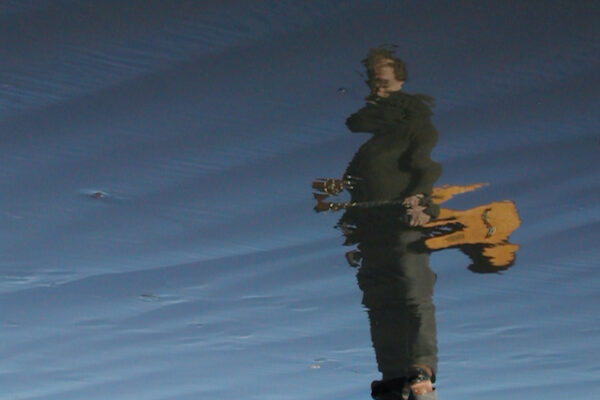
Two evenings featuring recent works by composer Tom Baker and others, to honor the passing of guitarist Mark Hilliard Wilson‘s mother, who passed away in 2022.
Thu. Jan. 16 – Wilson premieres Reflections on a Glacier (2023) by Seattle composer Tom Baker. Wilson commissioned this piece, and will feature it in a solo guitar concert along with First Nation composer Pascal Sasseville Quoquochi’s Totems, works by Renaissance titans Josquin De Pres and Diomedes Cato, as well as pieces by Gyorgy Kurtag and Graeme Koehne.
Fri. Jan. 17 – Wilson will present Baker’s Thirteen Ways of Looking at a Glacier (2023), a work that grew out of material from the commissioned guitar piece. It is scored for mezzo soprano (Maria Mannisto), alto flute (Sarah Bassingthwaight), viola (Rose Hashimoto), tenor saxophone (Evan Walker), and guitar. The text for this 13-movement song-cycle is based on a poem by Craig Santos Perez. In this chamber work, the solo guitar piece inserts itself between each song, as a kind of Greek Chorus, reflecting on each song and poem.
The concert explores themes of permanence and decay, of love and loss.
The commission came from a desire to commemorate the life of Wilson’s mother Celia Wilson, who passed away April 14th 2022. She was a ballet dancer, then choreographer, and Children’s Theater director in San Francisco, as well as in Payette, Weiser, and Boise, Idaho. She was incandescent, living loud, large and with so much joy, though when alone with family, close friends or working with children in plays, she could be quite sober and intimate.
The theme of titanic and magnificent objects created between 60 million and 2.9 billion years ago disappearing entirely due to our present practices of living and working is a worthy subject in its own right. But it also beautifully serves as a metaphor for the incomprehensibility of losing a loved one. We know it’s going to happen – to all of us – and yet it can still surprise us when the time comes. And scientists have given us so much evidence clearly indicating that we are changing the planet in ways that will make it harder, or impossible, to sustain the myriad of species and of life as we know it. Yet in the face of this imminent unfolding, we have to ask: will we be surprised when the time comes?
